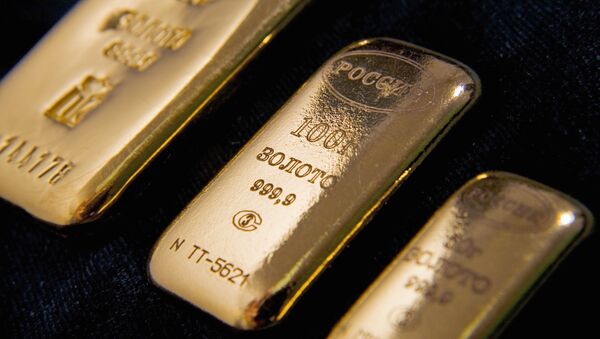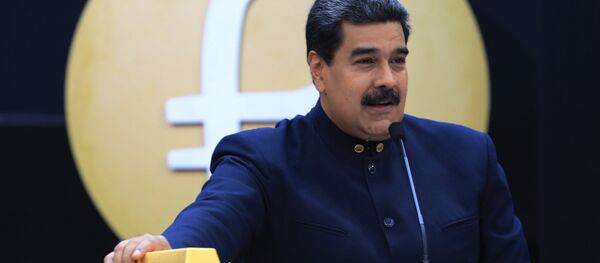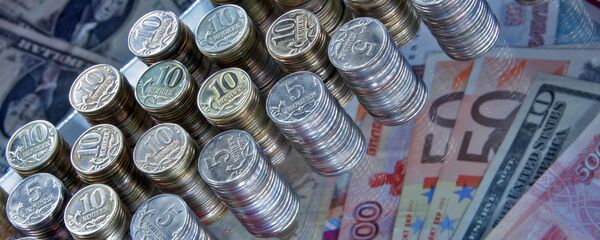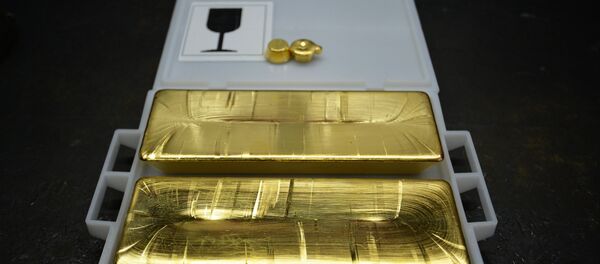Fresh figures on the price of gold in global trading have indicated that the precious metal continues to climb in value relative to other stores of value. Since mid-August 2018, prices have climbed from just under $1,196 per troy ounce to $1,327 per troy ounce this week.
Despite normal market fluctuations, gold prices have been climbing steadily since the early 2000s, rising from just $269 per ounce in August 2001 to $817 in August 2008, to a whopping $1,750 in August 2011 before overheating and coming back down to the $1,150-$1,350 mark, where they have hovered ever since, according to APMEX figures.
Good for Russia
The jump in gold prices means that the Bank of Russia has earned somewhere in the neighbourhood of $10 billion, analysts have estimated, based on Russia's total gold holdings compared to rising prices. But the rising value is just a bonus. The central bank's declared strategy is aimed at diversifying reserves and insuring them against the threat of sanctions.
As if to prove that the central bank's decision was the correct one, a bipartisan group of lawmakers introduced new legislation in the US Senate this week threatening to target Russian assets, companies and individuals with more sanctions, including a ban on operations involving Russian sovereign debt.
According to the World Gold Council, central bank purchases of gold were up 74 per cent last year compared to 2017, and the highest since 1971, after the US abandoned the gold standard.
Gold Hoarding
According to figures published last month, Russia's gold reserves jumped to 2,112 tonnes in 2018, putting the country in fifth place behind the US, Germany, Italy and France in terms of total reserves. If reserves continue to grow at their present pace, Russia may reach and surpass the record set by the USSR on the eve of the Second World War, when Moscow had accumulated 2,800 tonnes of the precious metal, in just a few years' time.






